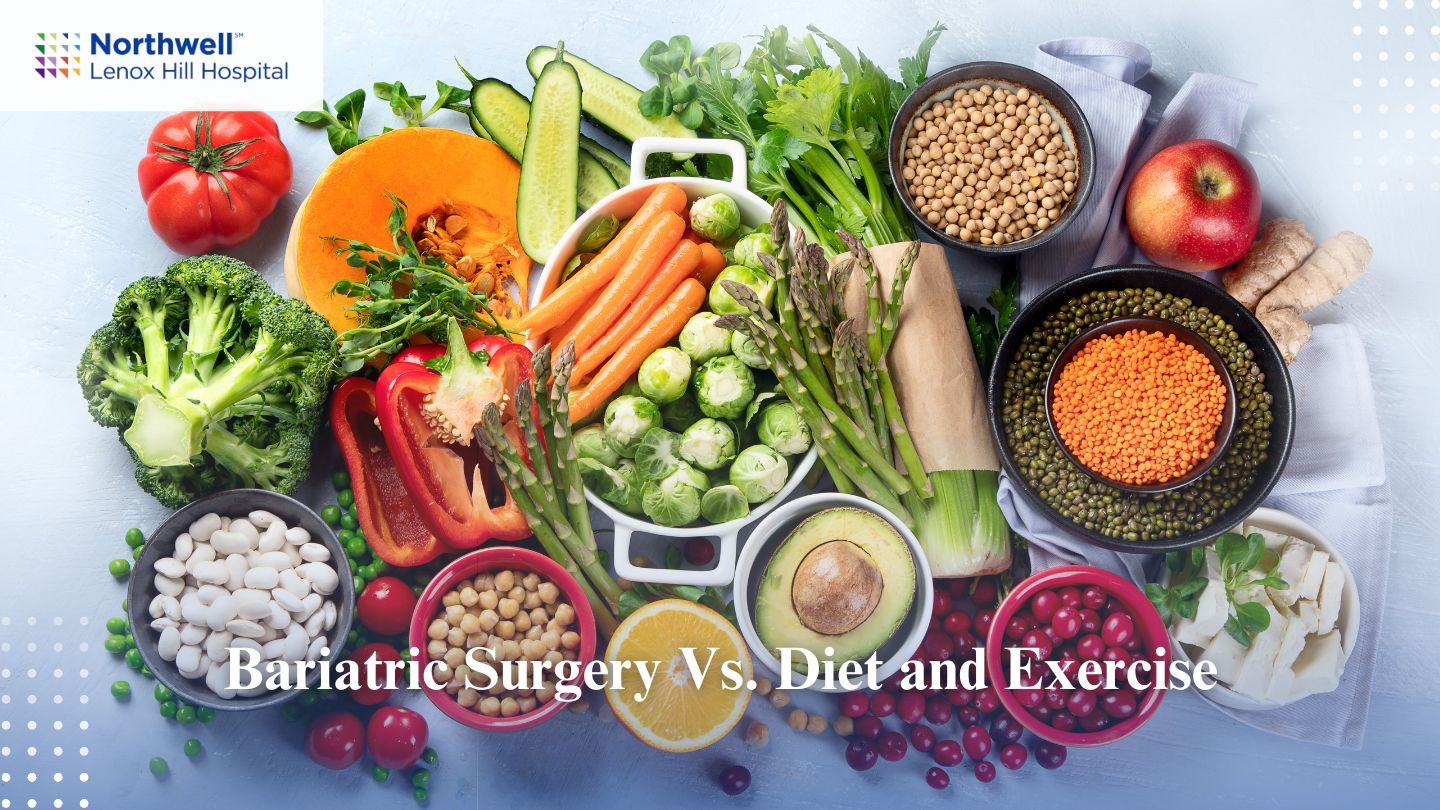
Bariatric Surgery Vs. Diet and Exercise
When it comes to weight loss, individuals often face a critical choice between traditional methods, like diet and exercise, and medical interventions, such as bariatric surgery. Each path has its own set of benefits and challenges. In this blog, we will explore both approaches to help you understand which option might be best suited for achieving your weight loss goals.
Key Takeaways
- Bariatric surgery is effective for significant weight loss in cases of severe obesity.
- Diet and exercise are crucial for long-term weight maintenance and health.
- Combining surgery with lifestyle changes enhances weight loss success.
What is Bariatric Surgery?
Bariatric surgery, commonly referred to as weight loss surgery, is a surgical procedure designed to help individuals with obesity achieve a healthy weight. This type of surgery involves making changes to the digestive system to limit the amount of food that can be consumed and absorbed by the body. Bariatric surgery is particularly effective for those who have struggled to lose weight through diet and exercise alone. There are several types of bariatric surgery, including gastric bypass surgery, sleeve gastrectomy, and adjustable gastric banding. Each of these procedures aims to reduce food intake and, in some cases, alter nutrient absorption, leading to significant weight loss and improvements in obesity-related health conditions. Bariatric patients often face challenges in maintaining weight loss without surgical intervention, making a healthy lifestyle crucial for long-term success.
Types of Bariatric Surgery
There are several types of weight loss surgeries, including gastric bypass surgery, sleeve gastrectomy, and adjustable gastric banding.
- Gastric Bypass (Roux-en-Y Gastric Bypass): This procedure involves creating a small pouch at the top of the stomach and connecting it directly to the small intestine. The result is a significant reduction in the amount of food the stomach can hold, combined with a decrease in calorie and nutrient absorption.
- Sleeve Gastrectomy: In this surgery, approximately 80% of the stomach is removed, leaving a small, tube-like stomach. This limits the amount of food that can be consumed and also impacts hunger hormones, often resulting in a decrease in appetite.
- Adjustable Gastric Band: This involves placing a band around the upper part of the stomach to create a small pouch that holds food. The band can be adjusted to control the passage of food, thereby regulating food intake.
- Biliopancreatic Diversion with Duodenal Switch (BPD/DS): A complex procedure that involves both a sleeve gastrectomy and rerouting of the intestines. It significantly reduces nutrient absorption and is usually recommended for individuals with a very high BMI.
Pros of Bariatric Surgery

- Rapid and Significant Weight Loss: Patients often experience dramatic weight loss shortly after surgery, improving their mobility and quality of life.
- Potential Improvement in Health Conditions: Many obesity-related conditions improve or even resolve post-surgery, including diabetes, hypertension, and sleep apnea.
- Life-saving for High BMI Individuals: For those with a high body mass index, bariatric surgery can be a life-saving intervention, reducing the risk of heart disease, stroke, and other serious health issues.
Eligibility and Candidacy
Bariatric surgery is not suitable for everyone, and determining eligibility involves evaluating several important factors. These criteria are designed to ensure that the procedure is appropriate and beneficial for the individual, reducing risks and enhancing the likelihood of successful outcomes. Below are the key factors considered when assessing candidacy for bariatric surgery:
- Body Mass Index (BMI): Candidates for bariatric surgery typically need to have a BMI of 40 or higher. Those with a BMI of 35 or higher may also qualify if they have obesity-related health conditions like type 2 diabetes, high blood pressure, or sleep apnea, which can significantly impact their overall health and quality of life.
- Previous Weight Loss Attempts: It’s important for candidates to have a documented history of trying to lose weight through traditional methods, such as diet and exercise. This demonstrates a genuine effort to achieve weight loss without surgical intervention and underscores the need for a more effective solution like bariatric surgery.
- Age Range: The typical age range for bariatric surgery candidates is between 18 and 65 years. This range ensures that patients are mature enough to understand the implications of the surgery and young enough to benefit from the long-term health improvements it can provide.
- Overall Health: Candidates must be in good overall health, meaning they should not have any severe medical conditions that could increase surgical risks. A thorough medical evaluation is necessary to ensure that the individual can safely undergo the procedure without heightened risk of complications.
- Commitment to Lifestyle Changes: A strong commitment to making and maintaining lifestyle changes is essential. This includes following a healthy diet and incorporating regular exercise into daily routines after surgery to maximize the benefits of the procedure and ensure long-term weight loss success.
It’s essential to consult with a healthcare professional to determine if bariatric surgery is right for you. They will assess your overall health and weight loss goals to determine if you are a good candidate for surgery. This consultation will help ensure that the decision to undergo weight loss surgery is well-informed and tailored to your individual needs.
What is Diet and Exercise?

Diet and exercise are two fundamental pillars of a healthy lifestyle and are essential for achieving and maintaining a healthy weight. A diet refers to the selection of foods and beverages consumed by an individual, while exercise encompasses physical activities performed to enhance or maintain physical fitness and overall health.
Types of Diets
- Balanced Diet: A balanced diet includes a variety of foods from all major food groups, providing essential nutrients such as carbohydrates, proteins, fats, vitamins, and minerals. This type of diet ensures that the body receives adequate nutrition to function optimally.
- Low-Carbohydrate Diet: This diet restricts carbohydrate intake, focusing on proteins and fats. Popular low-carb diets include Atkins and ketogenic diets, which aim to induce a state of ketosis for fat-burning.
- Mediterranean Diet: Inspired by the traditional eating habits of Mediterranean countries, this diet emphasizes fruits, vegetables, whole grains, olive oil, and lean proteins like fish and poultry. It is known for its heart-healthy benefits.
- Vegan and Vegetarian Diets: These diets eliminate meat and animal products. A vegetarian diet may include dairy and eggs, while a vegan diet excludes all animal-derived items. Both emphasize plant-based foods rich in fiber and nutrients.
- Intermittent Fasting: This eating pattern alternates between periods of fasting and eating. Common methods include the 16/8 method (fasting for 16 hours and eating within an 8-hour window) and the 5:2 method (eating normally for five days and restricting calories for two days).
Types of Exercises
- Aerobic Exercise: Also known as cardio, this type of exercise increases heart rate and breathing. Examples include walking, running, cycling, and swimming. Aerobic exercise is effective for burning calories and improving cardiovascular health.
- Strength Training: This involves using resistance to build muscle strength and endurance. Weightlifting, resistance band exercises, and bodyweight exercises like push-ups and squats are common forms of strength training.
- Flexibility Exercises: These exercises enhance the range of motion in joints and muscles. Stretching, yoga, and Pilates are excellent for improving flexibility and reducing the risk of injury.
- Balance Exercises: Important for maintaining stability and preventing falls, balance exercises include activities like tai chi and balance-focused yoga poses.
- High-Intensity Interval Training (HIIT): HIIT involves short bursts of intense exercise followed by rest or low-intensity periods. This type of workout is efficient for burning calories and improving fitness levels.
Incorporating a healthy diet and regular exercise routine into your daily life can significantly contribute to weight loss and overall well-being. Whether you choose to follow a specific diet plan or engage in various types of exercises, consistency, and dedication are key to achieving long-term success.
A Balanced Comparison Between Bariatric Surgery vs. Diet and Exercise

When considering options for weight loss, it’s essential to weigh the benefits of bariatric surgery against the traditional approach of diet and exercise. Both paths offer unique advantages and can be integral to a successful weight loss journey.
Importance of Diet and Exercise Post-Surgery
Even after undergoing weight loss surgery, maintaining a healthy diet and regular exercise routine is crucial. These lifestyle changes help ensure long-term weight loss success and enhance overall well-being. A balanced diet rich in essential nutrients and consistent physical activity supports the body’s ability to adapt to changes post-surgery, promoting a healthy life.
Traditional Diet and Exercise
On the other hand, diet and exercise are foundational elements of a healthy lifestyle. They offer a non-invasive approach to losing weight and can be tailored to individual preferences and needs. Whether it’s a balanced diet, low-carbohydrate plan, or intermittent fasting, combined with exercises like aerobic workouts or strength training, these methods provide flexibility and empowerment in one’s weight loss journey.
If you choose to pursue weight loss through traditional methods, it’s important to understand that this approach requires patience and precision. Achieving weight loss through diet and exercise is often a slower process compared to surgical options. It demands a consistent commitment to consuming fewer calories and adhering to a regular exercise routine. While the progress may be gradual, the rewards of developing a healthy lifestyle and achieving a healthy weight naturally can be incredibly fulfilling. Staying focused on your goals and maintaining dedication to this path can lead to long-term success and improved overall health.
Integrating Both Approaches
Ultimately, the decision between bariatric surgery and traditional methods depends on personal health goals and circumstances. Many find that combining the benefits of surgery with a commitment to diet and exercise offers the most effective path to achieving and maintaining a healthy weight. Consulting with healthcare professionals can help determine the best strategy tailored to individual needs, ensuring a comprehensive approach to achieving long-term weight loss and a healthier lifestyle.
Conclusion
In conclusion, both bariatric surgery and traditional diet and exercise offer viable paths to weight loss. While surgery provides rapid results for severe obesity, a healthy diet, and regular exercise remain essential for long-term success. Consulting healthcare professionals can guide individuals toward the most effective strategy for their unique needs.
Our expert team provides a comprehensive approach to weight loss and wellness, ensuring personalized care every step of the way. As one of the leading centers for bariatrics in NY, we offer a range of surgical options tailored to meet individual needs. Explore your journey towards a healthier life by visiting Lenox Hill Bariatric Surgery Program today and take the first step towards a brighter, healthier future.